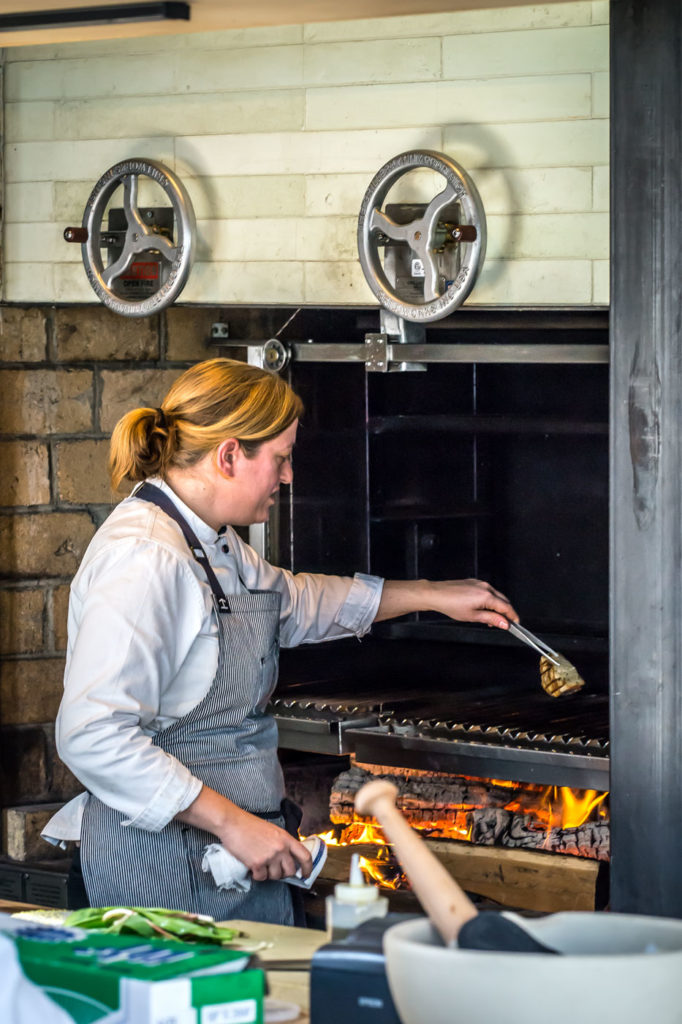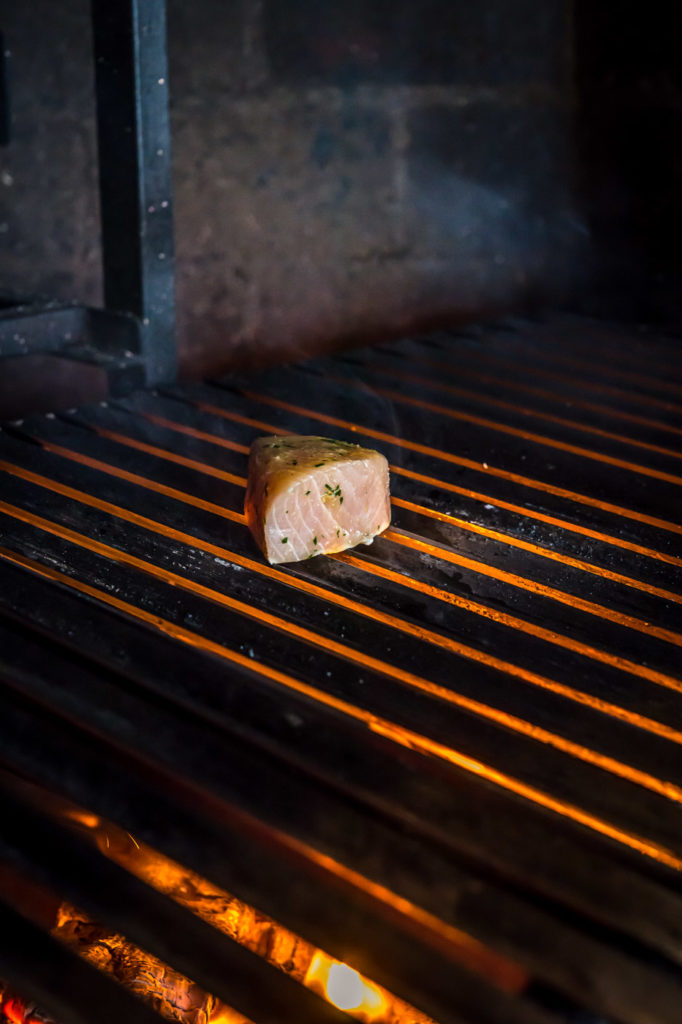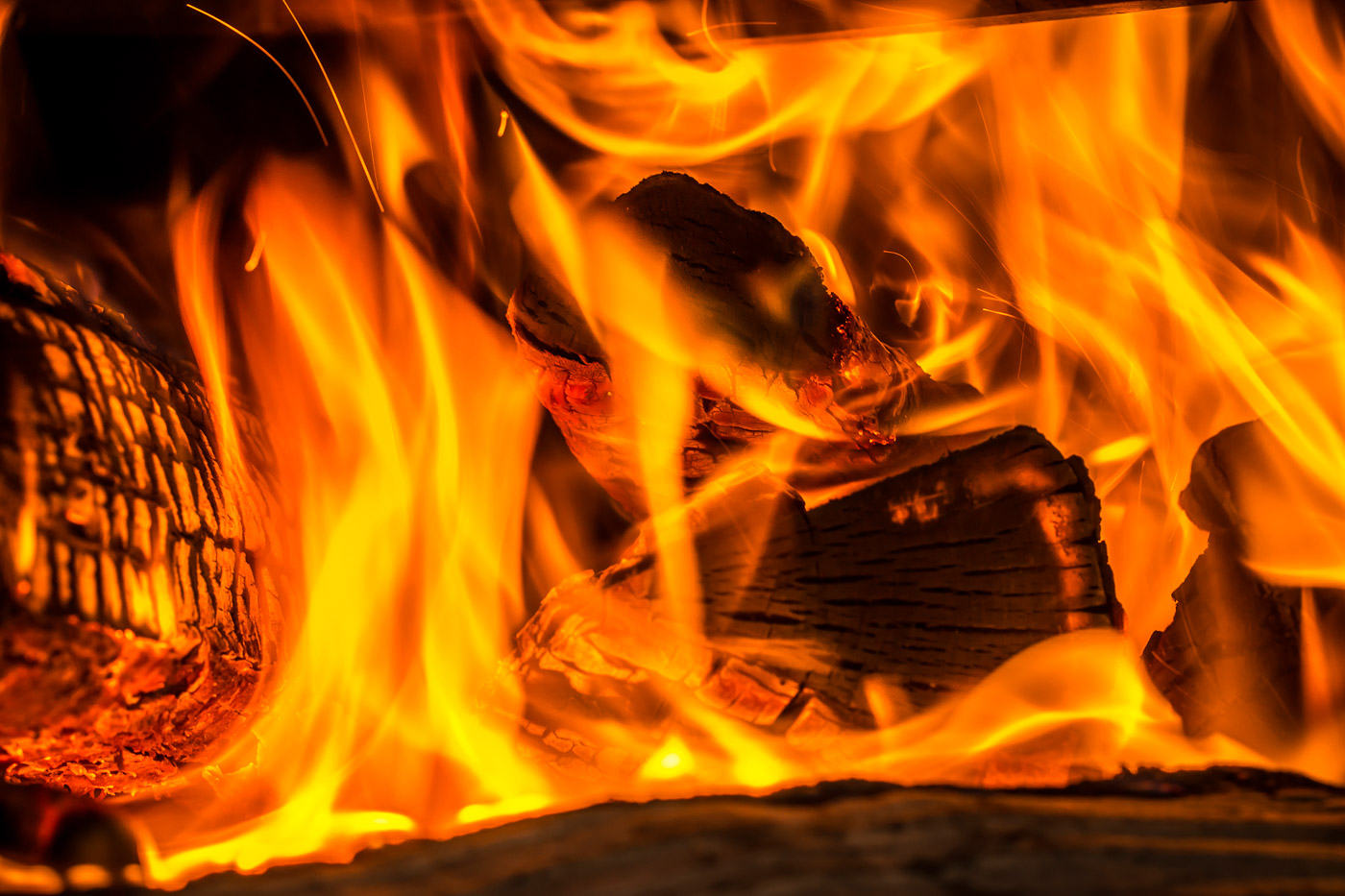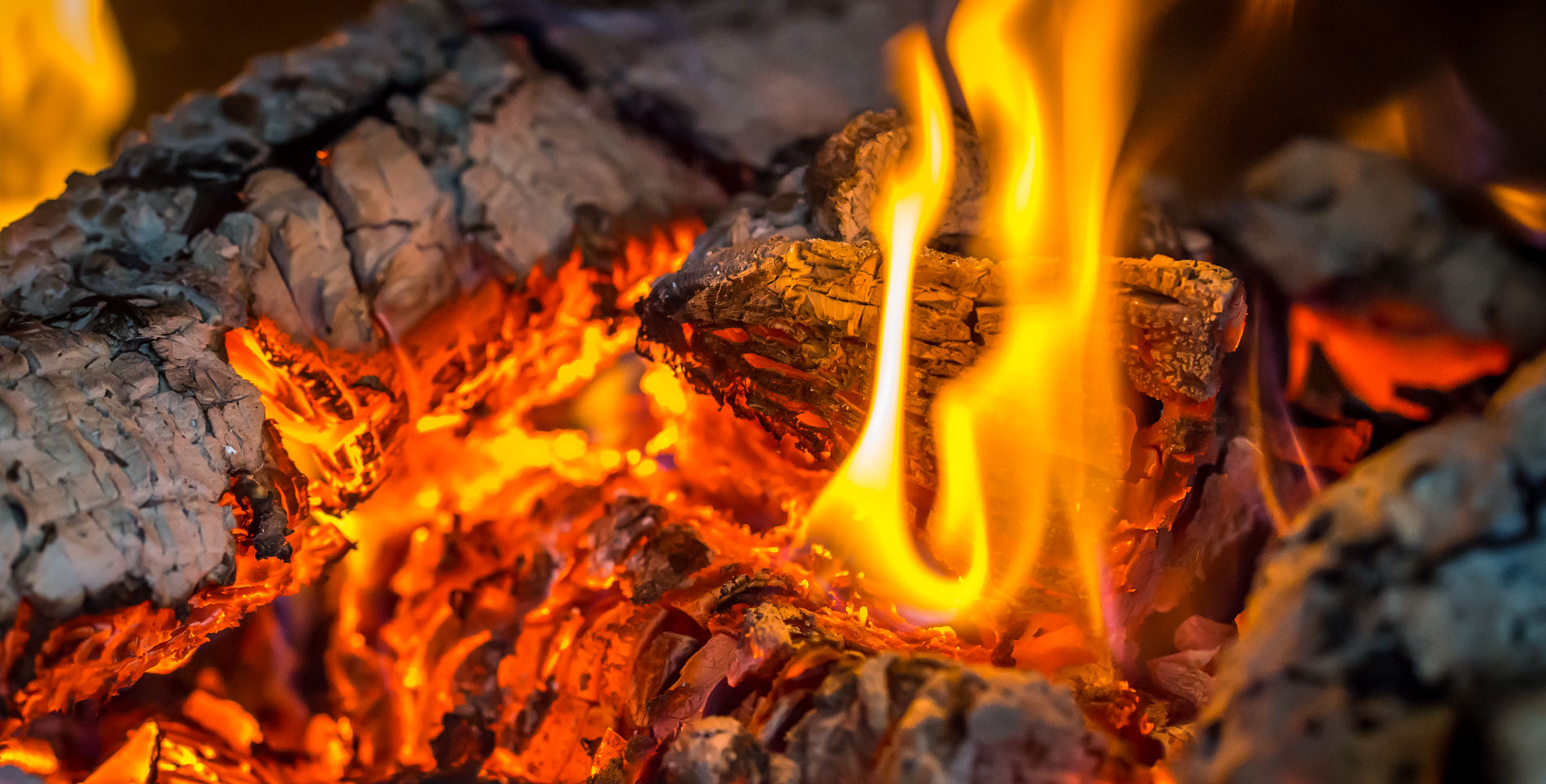Off the Menu
Editor’s Note: “Off the Menu” is a series of spin-off stories to the Life & Thyme print magazine. In today’s entry, we journey to Michigan with Benjamin Eisendrath, President of Grillworks, Inc., who makes his living creating wood burning grills for world-class restaurants around the world—like Lilia in Brooklyn, New York (our featured visual setting). In today’s story, he reflects on the significance of wood in his own family, a recurring theme that fuels his career. To read Eisendrath’s full story, order Issue Six today.
Before Infiernos, before Blue Hill, before Lilia, and before I made grills that have found happy homes in restaurants and various projects around the world, there was a boy who grew up building fires. Fires lit by strike-anywhere matches. Fires made of wood.


Above: Chef Missy Robbins with a Grillworks in her Brooklyn restaurant, Lilia.
Our family farm—The Farm—is located in northern Michigan. It is 100 acres of forest, 40 acres of cherry orchard, and one of the very few parcels of land in the area still nearly whole—not cut up into small lots after developers and vacationers turned what was previously a logging center into the Midwest Hamptons. The original grills were stored in the barn here while waiting for UPS. Growing up, this farm was central to my entire family; but it was particularly Dad’s fount of inspiration. A part-time griller and full-time journalist, he always did his best writing upstairs in the study—next to the bedroom I shared with my brother, Mark—banging on the keys loudly enough to rattle the door and often starting as early as 6 a.m.
Powering Dad’s literary productivity were the “projects” punctuating our (his) farm days. Mark and I generally dreaded the morning knock at the door; although it could be the jackpot of a fishing trip or some shooting, it was far more likely a battle plan for some “character building” for 12- to 14-year-old boys—like digging driveway drainage trenches, locating a boat mooring in 58-degree water, or (and most often) a Wood Detail.
There were many kinds of Wood Details. Here, listed in descending order of boyhood dread, were the most common:
Picking up Sticks: I remain scarred to this day. Supposedly a useful way to gather kindling for the farm’s various fires, this task seemed to crop up most often when we were in the doghouse, or if we conveniently had friends visiting. The mowed area around the farmhouse is two full acres, and there were always more sticks coming. No fun axes or hatchets to wield, no tractors to ride, only a wheelbarrow and the Sisyphean task of clearing sticks from a yard ringed by gnarled old apple trees forever dropping new ones. Dad only made appearances to point out what we had missed.
Clearing Brush: Again, the absence of cool/dangerous equipment made this one unsatisfying to teen boys—really just a scratchy day of dragging thorny bushes away from Dad’s tractor or chainsaw blades and piling them at the edge of the lawn (see: The Burn). I’m sure it was necessary to clear brush from an area out of view of the house—nowhere near a road or manmade structure—but that necessity certainly was lost on me at the time. See Picking up Sticks but add Dad Gets to Operate Power Equipment.
Fixing the View: This wasn’t so much a true Wood Detail as a recurring Dad-versus-his-family exercise in eyerolling (Mom) and Mark’s and my inability to comprehend why a guy who was so crazy for wild, unmanicured forest would turn on 100-year-old trees that had merely grown a few inches too far into our narrow view of the lake. The View was sacred. In the end we stood by as the trees met their end, or even weirder to us at the time, got their tops lopped off. Standing there knowing that all this led to Removing Trees From Across the Road.
Removing Trees From Across the Road: Since every road and path around the farm is running through the woods or lined by trees, this one was a constant—whether necessitated by Fixing the View or a storm, the news that a tree was blocking one of these thoroughfares had a sense of urgency to it. Like what if we couldn’t get the Suburban down to the lake in an emergency? Chainsaws were fueled, work gloves were donned, and Mom saw us off to heroically save the day.

The Burn: Ah, the burn. This one always felt like our reward for all of it. For Clearing the Brush, even Picking up Sticks. By mid-summer there were at least two towers of thorns, tree tops and the odd broken wooden chair—both pushing two stories high. The Burn was epic. It took all day. Three pyromaniacs throwing everything into the towering blaze. The endgame: successfully steering the blaze by strategically moving timber around, using the breeze and movements of the flame to consume everything we had dragged there over the past months. It was like having a 50x scale model of future cooking fires. Mom would come out beaming (really, laughing) at the grand time her boys were having.
Today the keys still bang, Mom still smirks, the sticks still fall in the yard. And although they aren’t stored in the barn anymore, Grillworks grills are all created in a shop 25 minutes away. But now Mark and I couldn’t live without the Wood Details. No longer do we hope for a chainsaw breakdown. Dad doesn’t need to knock at the door; now we knock on his. I love saving the road from a fallen tree. Mark spends hours splitting wood just for the joy of wielding his axe.
And before we light the grill, Mark’s sons—my three nephews Tappen, Teal and Jay—get the privilege of Picking up Sticks.

Above: Benjamin Eisendrath, President of Grillworks, Inc.



Our comments section is for members only.
Join today to gain exclusive access.